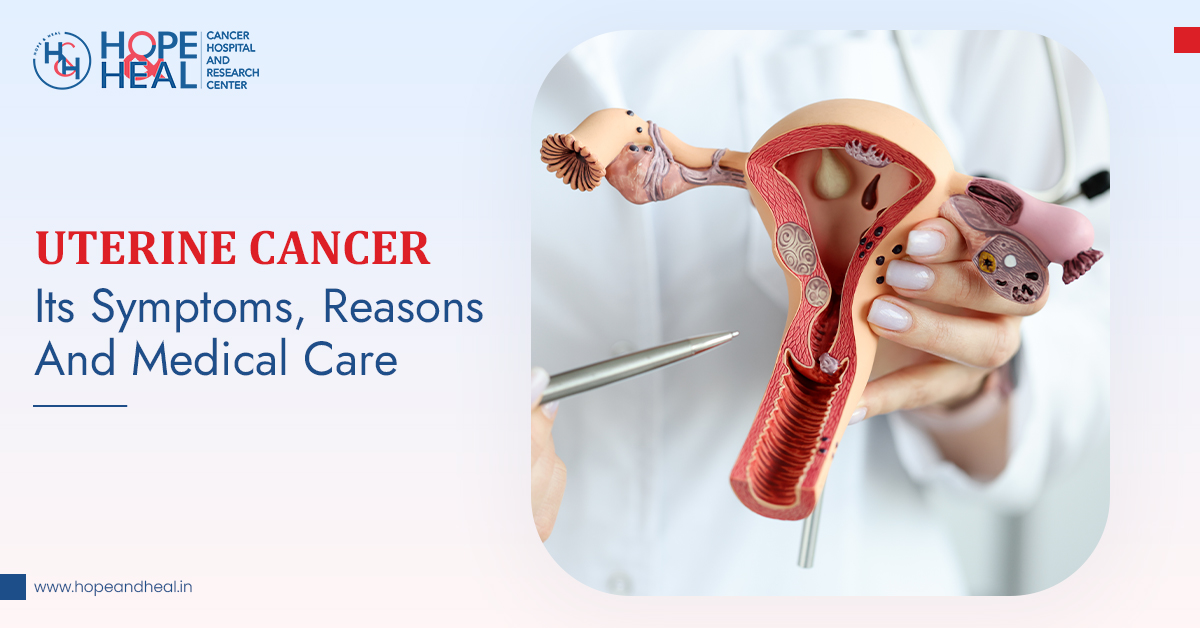Uterine cancer is the cancer of the uterus or womb, in which abnormal division goes out of control. Endometrial cancer is a type of uterine cancer and about 95% of uterine cancers are endometrial cancer. There’s another type of uterine cancer called uterine sarcoma, but it’s a rare form.
If you notice signs like vaginal bleeding between periods, lower abdominal pain, heavy periods, trouble urinating, weight changes, consult your gyne doctor without delay. These signs are common in several gynecological problems. Hence, health analysis under medical supervision is important. For uterine cancer treatment in Siliguri, visit the best cancer hospital in the city.
Signs and symptoms associated with uterine cancer?
Unusual vaginal bleeding is the classic sign of uterine cancer. But it’s not the parameter to rule out if one has uterine cancer.
Given below are common signs and symptoms of uterine cancer:
• Vaginal bleeding between periods
• Vaginal bleeding before and after menopause
• Vaginal spotting
• Heavier periods
• Unexplained weight loss
• Pelvic pain/lower abdominal pain
• Abnormal vaginal discharge
Be sure not to overlook these signs and seek medical attention early on. Health evaluation under clinical tests and diagnostic procedures helps your medical expert rule out the underlying cause.
Uterine cancer affects women and AFAB people (assigned female at birth). When endometrial cancer takes place in the endometrium, which is the inner lining of the uterus, uterine sarcoma takes place in the myometrium, the muscle wall of the womb/uterus. Get optimum cancer treatment in Siliguri at the leading cancer hospital in the region.
What are the risk factors for uterine cancer?
Though the definitive cause of uterine cancer is unknown, there are risk factors. Given below are the contributing factors for uterine cancer:
• Hormonal imbalance (estrogen and progesterone)
• Older age
• Family history of uterine cancer
• Obesity
• Lynch syndrome
• A diet high in animal fat
• Family history of ovarian cancer
• Endometrial hyperplasia
• Polycystic ovary syndrome
• Ovarian tumours
• Never having children/not getting pregnant
• Radiation therapy exposure to the pelvis/pelvic area
• Staring period at an early age
On the other hand, high blood pressure, diabetes, late menopause, Cowden syndrome, etc. can increase your risk for uterine cancer. Cancer spread, anaemia or low haemoglobin, etc. are some complications of uterine cancer. Receive dedicated uterine cancer treatment at the best oncology center in Siliguri. Early diagnosis and proper treatment help increase the survival rates.
Diagnosis and medical care for endometriosis
Clinical tests and diagnosis of uterine cancer include:
• A physical examination
• A pelvic examination
• A pelvic ultrasound
• A transvaginal ultrasound
• An abdominal ultrasound
• Blood tests
• Urine test
• Biopsy/endometrial biopsy
The doctor will review the patient’s medical history and family history and talk about the symptoms you have. Further tests include CT scan, MRI, PET scan, X-ray, dilation & curettage, etc.
Surgery is the very first treatment approach for uterine cancer. A combination of treatments that you may need to heal uterine cancer, such as surgery, chemotherapy, radiation therapy, immunotherapy, hormone therapy, targeted therapy, and palliative care. Consult your specialist.





Comments